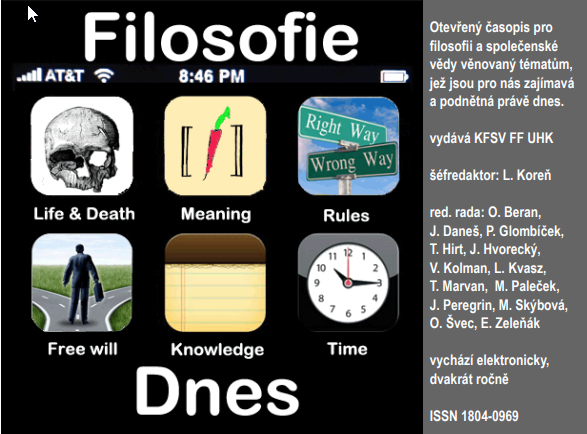Frege's conception of the reference of a general term
DOI:
https://doi.org/10.26806/fd.v5i1.115Keywords:
Frege, význam obecného výrazu, funkce a množiny, obecninyAbstract
Gottlob Frege distinguished between sense and reference of expressions. 'Sense' according to him is that what the expression means, 'reference' is that what is designated by it. This distinction concerns both singular and general terms but Frege’s analyses focused on general terms are much less known. It is crucial, I argue, to appreciate the importance of the fact that the reference of a general term is, according to Frege, a concept – identified with an unsaturated function in the Fregean sense, i.e. not a set, and not a mapping. In this way Frege can keep some important intuitions about universals – for instance that we can have a general concept (know a property or a relation) even if we don’t know which objects fall under it. I also try to show that it is not clear whether Frege really defended the thesis usually attributed to him that the identity of concepts is guaranteed solely by their coextensivity.
Downloads
Published
Issue
Section
License
Authors who publish in this journal agree that:
1. Authors retain copyright and guarantee the journal the right of first publishing. All published articles are licensed under the Creative Commons Attribution license, which allows others to share this work under condition that its author and first publishing in this journal was acknowledged.
2. Authors may enter into other agreements for non-exclusive dissemination of work in the version in which it was published in the journal (for example, publishing it in a book), but they have to acknowledge its first publication in this journal.
3. Authors are allowed and encouraged to make their work available online (for example, on their websites) as such a practice may lead to productive exchanges of views as well as earlier and higher citations of published work (See The effect of open access).


